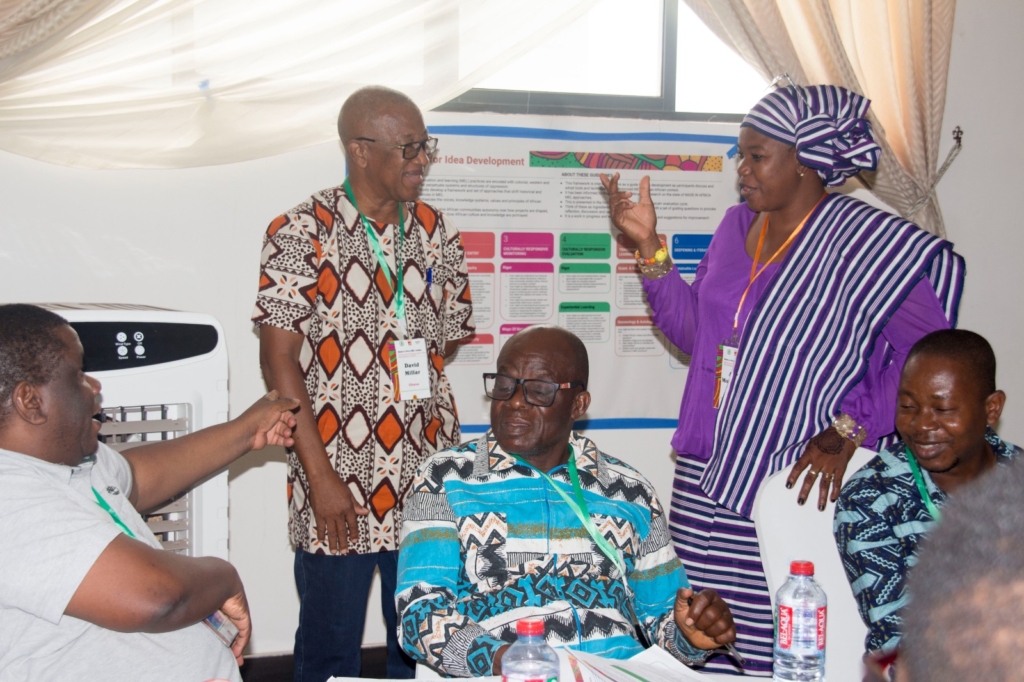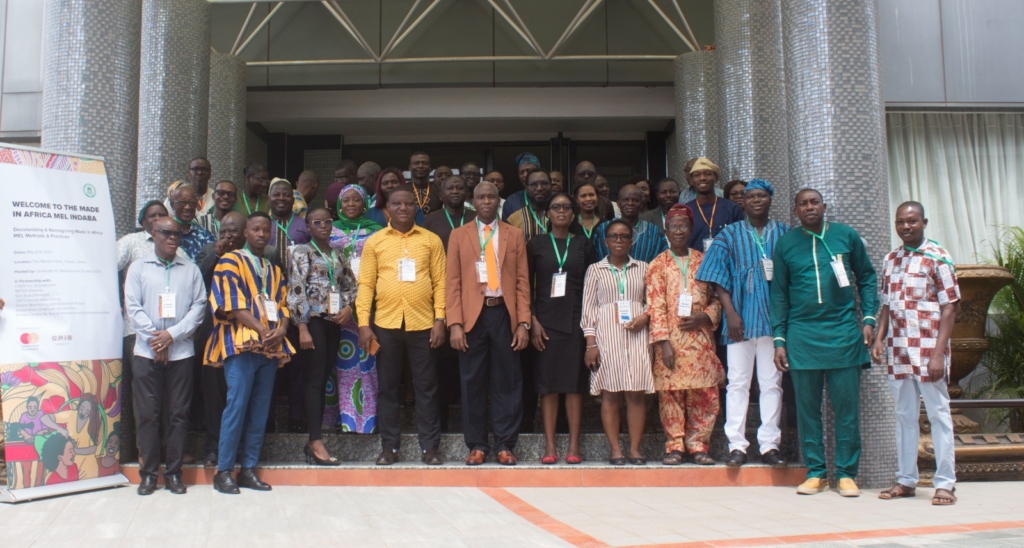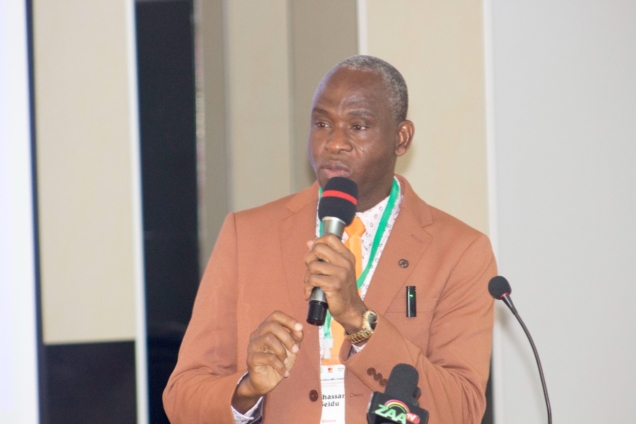Vice Chancellor of the University of Development Studies (UDS), Professor Al-hassan Seidu, has stressed the importance of recognising Africa's distinctive approaches to monitoring, evaluating, and predicting events, saying these methods, often disregarded, play a crucial role in enhancing development and progress in the lives of its people.
Professor Seidu provides instances where people in Africa relied on spiritual interventions to resolve issues, such as recovering stolen money through invoking the gods, underscoring Africa's rich cultural heritage, including its stories, festivals, taboos, and wisdom passed down by elders, which have the potential to bring about significant changes.

He highlights the traditional foresight of Africans, who historically predicted future events, like rainfall and harvests by observing natural phenomena. Contrasting it with modern forecasting methods, he said they have helped to govern and develop communities. However, these valuable resources have been overlooked in recent years.
"Africa had its own way of doing things but it is just that we don't want to hear made in Africa - people don't want to patronise," he said.
He was speaking at the opening ceremony of the De-colonising and Re-imagining Made in Africa MEL Methods and Practices in Tamale in the Northern region of Ghana. The event envisions a future where Africa reshapes its own narratives: Decolonizing and Reimagining Made in Africa monitoring, evaluation and learning (MEL) Methods and Practices.
The Indaba aims to facilitate and structure the theory of decolonizing MEL methods and tools in Africa context. The Indaba brings practitioners experts, academics, indigenous knowledge bearers and thought leaders, youth, and gender representatives across Africa to develop practical tools for decolonizing MEL in Africa and beyond.
Professor Seidu notes that Africans have always had the ability to forecast and predict events, such as rainfall and harvests, by observing natural phenomena, stressing that it's time to recognise and appreciate Africa's indigenous knowledge and ways of measuring development, rather than solely relying on external benchmarks.
He believes that embracing this approach will lead to true development and progress for Africa.
"Sometimes, we even forget that, we are even more developed than other people, but it is the way we measure ours - nobody sees that. Nobody hears that, - that is the problem," he emphasised.
Professor Seidu emphasizes that while Africans may overlook certain aspects, others recognize their contribution to development, stressing the importance of the continent prioritizing these elements.
He believes that the De-colonising and Re-imagining Made in Africa MEL Methods and Practices project aligns with Africa's development agenda and advocates for an Africa-centric approach that incorporates indigenous methods for measuring development progress.

The project wants to advance the process of developing evaluation approaches that prioritize African knowledge systems, local ways of knowing, and cultural practices over the hegemonic Eurocentric ones; while remaining sensitive to the diverse cultural context of Africa.
A senior director at the Mastercard Foundation, Adeline Sibanda says, the Foundation's 2020 launch of its impact strategy, aimed at fostering comprehensive impact across all levels, also sought to introduce novel approaches to understanding impact and to honor Indigenous knowledge, evidence, and perspectives in narrating the life trajectories of youth.
Adeline acknowledges Dr. Sulley Gariba (1958-2021), the visionary leader behind crafting the Impact Strategy. Drawing on his extensive experience as a diplomat, policy advisor, evaluator, entrepreneur, and storyteller, she says, the strategy reflects his dedication to rectifying entrenched asymmetries of knowledge and power by amplifying the voices of young individuals, along with the stories and wisdom of African and Indigenous communities in Canada.
“We believe that no evaluation exists outside a context or cultural realities. It is important to implement a youth centred, inclusive, Indigenous approach in our work. We need to interrogate how we as evaluators arrive at knowledge. What lenses are we using and are they appropriate,” she said.
The senior director highlights that elevating indigenous and alternative knowledges is a central focus of their work within the Impact, Research, and Learning Function of the Mastercard Foundation. She emphasizes that for interventions or investments to generate lasting and sustainable impact, and to effectively transform communities and individuals, they must be firmly grounded in their culture, tradition, and authentic aspirations.
“The Mastercard Foundation through the Sulley Gariba Legacy initiative is committed to investing in advancing the field of Indigenous research and evaluation in Africa and Canada. At the Mastercard Foundation, we are proud to be associated with organizations that are working hard to recover, revive and redeploy these knowledges. Among these are the Carleton University with whom we are supporting the evolution of a network of African scholars of indigenous knowledges, and the Council for Development of Social Science Research in Africa (CODESRIA) with whom we are supporting the training of early career researchers to explore, preserve and deploy indigenous and alternative knowledges co-creatively with indigenous knowledge keepers.”
Latest Stories
-
Africa World Airlines to reduce air fares by end of June 2025
1 hour -
Nationwide crackdown: Ghana’s Anti-Galamsey Task Force intensifies operations
1 hour -
TOR debt rose to a record $517m as of December 2024
1 hour -
‘Good Girl No Dey Pay’ but it cost me plenty – Maya Blu gets candid
2 hours -
GFA imposes transfer ban on Hearts of Oak over unpaid $70,000 debt to New Edubiase
2 hours -
TOR to resume full operations in October 2025 – Acting MD
2 hours -
Celestine Donkor headlines Exceptional Gratitude concert in Italy
2 hours -
Ghana’s international reserves to be quickly eroded by a sharp decline in gold prices – Fitch Solutions warns
3 hours -
T-bills: Government fails to meet target for 4th consecutive week; investors prefer BoG bills
3 hours -
BDCs up in arms against Laycan disruption
3 hours -
Galamsey fight: 4 excavators seized at Kyebi; offenders flee Birim River
3 hours -
Ecobank-JoyNews Habitat Fair wraps Day 3 with record deals
3 hours -
Ghana’s flooding crisis: An engineer’s perspective
3 hours -
Ayisi releases official music video for ‘Yɛn Ware’ – A love letter in motion
4 hours -
Ellembelle: 11 Chinese illegal miners arrested; excavators, other equipment seized
4 hours

